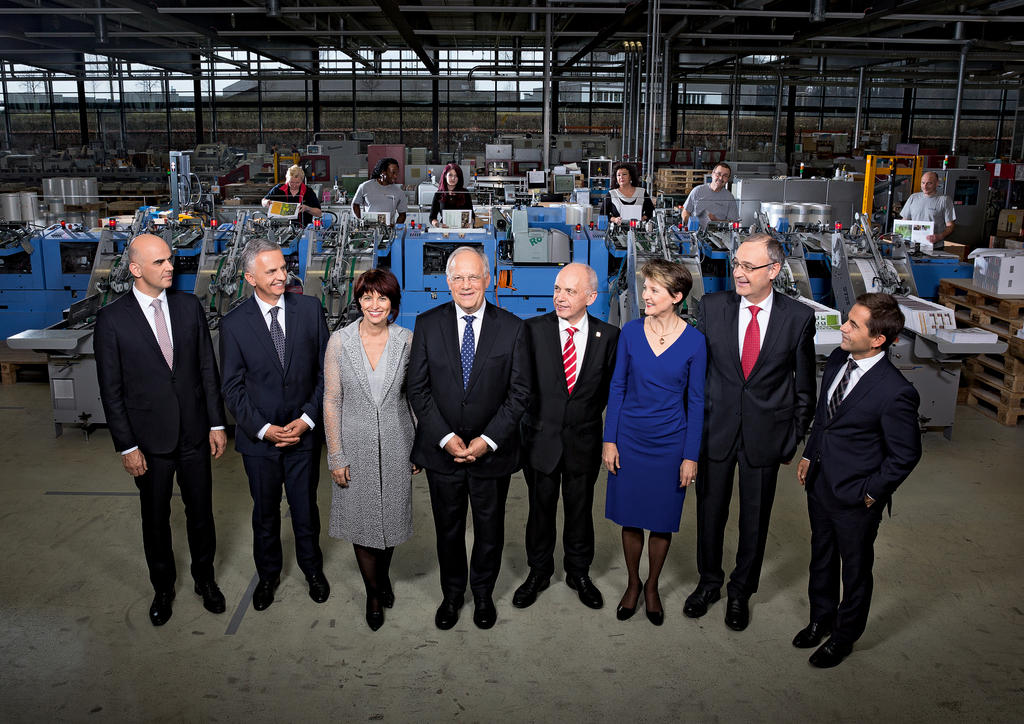Swiss government opposes more cabinet members

The seven-strong Swiss cabinet has rejected a proposal to expand the number of ministers governing the country to nine. The idea had been put forward by a parliamentary committee examining possible constitutional reforms.
The committee has suggested increasing the cabinet by a further two members in order to better reflect Switzerland’s varied cultural and linguistic landscape. While the current cabinet welcomed the motives behind the proposal, it said on Wednesday that this was adequately covered by the present arrangement.
Furthermore, increasing the number of ministers would increase the administrative burden by creating more “interfaces” between government departments and parliament, the cabinet said.
The cabinet is the only government body to have remained essentially unchanged since the creation of the Swiss federalist state in 1848. But in recent years, there have been various calls to reform the seat of government.
Reform initiatives
In 2009, the Justice Ministry and Federal Chancellery examined a range of options, which included extending the length of the presidency beyond a year, accelerating the decision-making process and expanding the range of political parties represented in the cabinet.
In 2013, voters rejected an initiative from the rightwing Swiss People’s Party that called for citizens – not parliament – to directly vote in government ministers.
For nearly 60 years, the Swiss cabinet has operated the 2-2-2-1 “magic formula” of power sharing between the major parties. This figure relates to the number of cabinet seats awarded to the Social Democrats, Radicals, People’s Party and Christian Democrats.
Parliament decides which individuals from each of the main parties shall become a minister. In 2007, this system caused a major political rift when parliament rejected the re-election of Christoph Blocher and replaced him with the more moderate People’s Party colleague Eveline Widmer-Schlumpf, who later broke away to form a new party.

In compliance with the JTI standards
More: SWI swissinfo.ch certified by the Journalism Trust Initiative











You can find an overview of ongoing debates with our journalists here . Please join us!
If you want to start a conversation about a topic raised in this article or want to report factual errors, email us at english@swissinfo.ch.